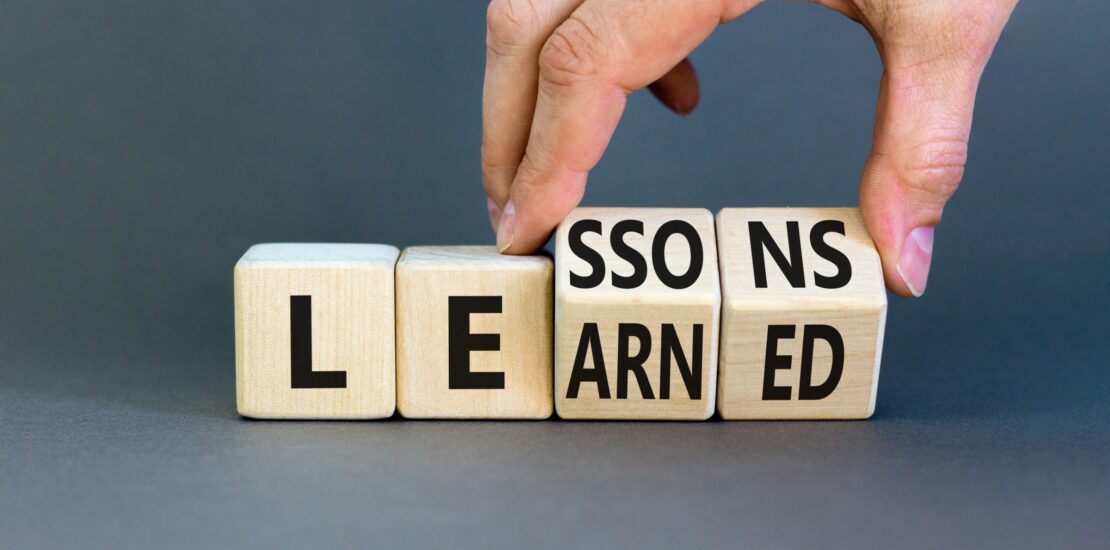selling
-
12 Powerful Sales Lessons from “The Chosen”
- February 6, 2024
- Posted by: Dave Kurlan
- Category: Understanding the Sales Force

I’ve written hundreds of articles with analogies to sales using athletes, musicians, actors, CEOs, politicians, inventors, songs, movies, TV Shows and their characters and you didn’t need to be a fan of them to appreciate the sales lessons. While watching this enjoyable TV series, I identified eleven solid analogies to sales and selling so we’ll get right to them because I’m sure you aren’t reading my sales articles for my opinions on faith or religion!
-
How to Always Respond Appropriately to Your Prospect
- December 21, 2023
- Posted by: Dave Kurlan
- Category: Understanding the Sales Force

When a salesperson experiences momentary panic, or forgets what to do or how to do it, that call, Zoom, or in-person meeting is over. It could even spell the end of that opportunity. I’ll explain how to Always Respond Appropriately to Your Prospect
Three ingredients influence events like these:
-
Surprising New Data on Salespeople Busts the Myths about Relationship Selling and Social Selling
- June 16, 2016
- Posted by: Dave Kurlan
- Category: Understanding the Sales Force

I had a theory about salespeople, but didn’t have the data to prove it out. I believed that social selling was a godsend to those in sales who were not great at relationship building – that by utilizing applications like LinkedIn and Twitter, they could reach out to new people, but with the benefit of hiding behind the glass screen. Do you think I was right? Or wrong?
-
Effective Selling is Less about the Words and More About How You Say Them
- April 25, 2016
- Posted by: Dave Kurlan
- Category: Understanding the Sales Force

Whether you are trying to convince a prospect, customer or salesperson, make sure you emphasize the how over the what and your message has a much better chance of being accepted in the spirit you intended.
-
Getting Deals Closed – End of Quarter Sales Gone Mad
- March 3, 2011
- Posted by: Dave Kurlan
- Category: Understanding the Sales Force
In the 26 years that I’ve been helping companies grow and develop sales and revenue, I have rarely met with an executive for the first time and not heard about —it.
It all begins around week 11 of the quarter. A frenzy of calls, increased activity, sales management and sometimes C-Level intervention, discounts, offers that can’t be refused, and more. For 3 weeks every quarter, the entire sales force – hell, the entire company – takes on a do whatever it takes attitude to bring those deals in house.
-
Did Your Salespeople Choose to Be in Sales?
- January 5, 2011
- Posted by: Dave Kurlan
- Category: Understanding the Sales Force
Even if you reviewed as many resumes as I do each week you might not notice this: Most sales candidates did not have a sales position as their first job after college. Most started as something else and then, out of the blue, they were in sales, sales management, marketing, or business development. I always get suspicious when somewhere back in time a candidate went from Purchasing to Sales Management and never sold along the way…
-
Top 10 Outcomes That Should Come from Sales Coaching
- December 14, 2010
- Posted by: Dave Kurlan
- Category: Understanding the Sales Force
When you coach a salesperson, which words should you hear that would tell you the session was effective?
Not “Thanks” or “OK”.
-
How to Determine if Your Sales Process is Effective
- December 8, 2010
- Posted by: Dave Kurlan
- Category: Understanding the Sales Force
Can you reverse engineer your sales calls?
OTHER THAN THE PART OF YOUR SALES CALL THAT INVOLVES PRESENTING, could you break down and explain, each step, strategy, tactic, question, response and milestone met, in the order they occurred, why they were chosen, and the resulting reaction of each occurrence, AFTER you’ve completed an entire sales cycle?
-
The Difference Between Selling to Negotiators and Price Shoppers
- February 2, 2010
- Posted by: Dave Kurlan
- Category: Understanding the Sales Force
Salespeople often confuse the prospect who needs to negotiate with one who must have the lowest price and as Michael says so often in his article, nothing could be further from the truth.
-
18 Business Trends For Your Sales Force
- January 21, 2010
- Posted by: Dave Kurlan
- Category: Understanding the Sales Force
Before they handled one caller’s sales force challenges (excellent stuff) , they commented on the state of business out there right now.
They see:

